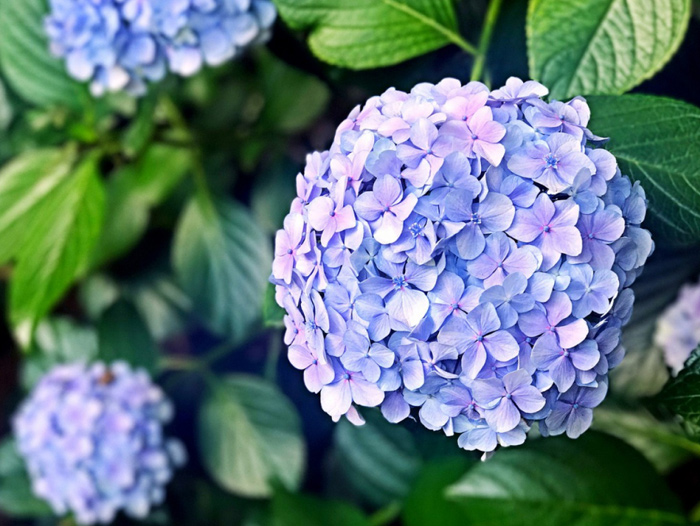UNH Hosts Spring Greenhouse Open House April 5-6
March 25, 2019 | 4 min to read

DURHAM, N.H. – Come learn about home gardening, landscaping, current horticultural research, and other growing information at the University of New Hampshire Spring Greenhouse Open House at the Macfarlane Research Greenhouses Friday, April 5, and Saturday, April 6, 2019. The greenhouses will be open from 9 a.m. until 4 p.m. both days. The event is free and open to the public.
A facility of the NH Agricultural Experiment Station, the UNH Macfarlane Research Greenhouses provide a venue for UNH faculty, staff and students to present colorful displays and educational lectures of interest to home gardeners, greenhouse producers, and landscapers. This year’s lectures including learning to prune fruit trees, how to make a fresh vegetable roll, how to grow great tomatoes, and knowing and growing hydrangeas. Lectures will be held in Putnam Hall, Room 103.
The UNH Thompson School will offer a flower show-quality display with a Beatrix Potter Peter Rabbit theme. The UNH Plant Diagnostic Lab and Cooperative Extension Plant Health Program will have a display on common diseases and problems of garden and landscape plants. Attendees are encouraged to come with questions about plant health problems. UNH experts and Master Gardeners will be on hand to help get gardens off to a great start.
Friday and Saturday tours will be scheduled for the Macfarlane Research Greenhouses, aquaponics research greenhouses at the Kingman Research Farm, and the UNH high tunnels, two greenhouse-style structures associated with the Sustainable Agriculture and Food Systems program where students produce greens for on-campus consumption.
Other open house activities include the UNH Thompson School Flower Show and Plant Sale, and children’s activities. The Greenhouse Café will serve coffee, lunch, and delicious homemade treats. The café, hosted by the Thompson School Horticultural Club.
The UNH Macfarlane Research Greenhouses are located off Main Street on the west end of Durham. Seminars will take place in Putnam Hall across the parking lot from the greenhouses. On Friday, metered parking is available at the UNH Visitor Center across from the greenhouses; parking on Saturday and Sunday is free. Handicap parking spaces and short-term parking for plant pickup will be available near the main greenhouse entrance. The greenhouses are also served by Wildcat Transit’s shuttle service: https://www.unh.edu/transportation/wildcat-transit.
For more information, please visit https://www.facebook.com/nhaes/ andhttps://www.facebook.com/UNHMacfarlaneResearchGreenhouses/.
The UNH Greenhouse Open House is sponsored by the NH Agricultural Experiment Station, the Thompson School of Applied Science, UNH Biological and Sustainable Agriculture programs of the UNH College of Life Sciences and Agriculture, and UNH Cooperative Extension.
Founded in 1887, the NH Agricultural Experiment Station at the UNH College of Life Sciences and Agriculture is UNH’s original research center and an elemental component of New Hampshire’s land-grant university heritage and mission. We steward federal and state funding, including support from the USDA National Institute of Food and Agriculture, to provide unbiased and objective research concerning diverse aspects of sustainable agriculture and foods, aquaculture, forest management, and related wildlife, natural resources and rural community topics. We maintain the Woodman and Kingman agronomy and horticultural research farms, the Macfarlane Research Greenhouses, the Fairchild Dairy Teaching and Research Center, and the Organic Dairy Research Farm. Additional properties also provide forage, forests and woodlands in direct support to research, teaching, and outreach.
The University of New Hampshire is a flagship research university that inspires innovation and transforms lives in our state, nation and world. More than 16,000 students from all 50 states and 71 countries engage with an award-winning faculty in top ranked programs in business, engineering, law, liberal arts and the sciences across more than 200 programs of study. UNH’s research portfolio includes partnerships with NASA, NOAA, NSF and NIH, receiving more than $100 million in competitive external funding every year to further explore and define the frontiers of land, sea and space.
